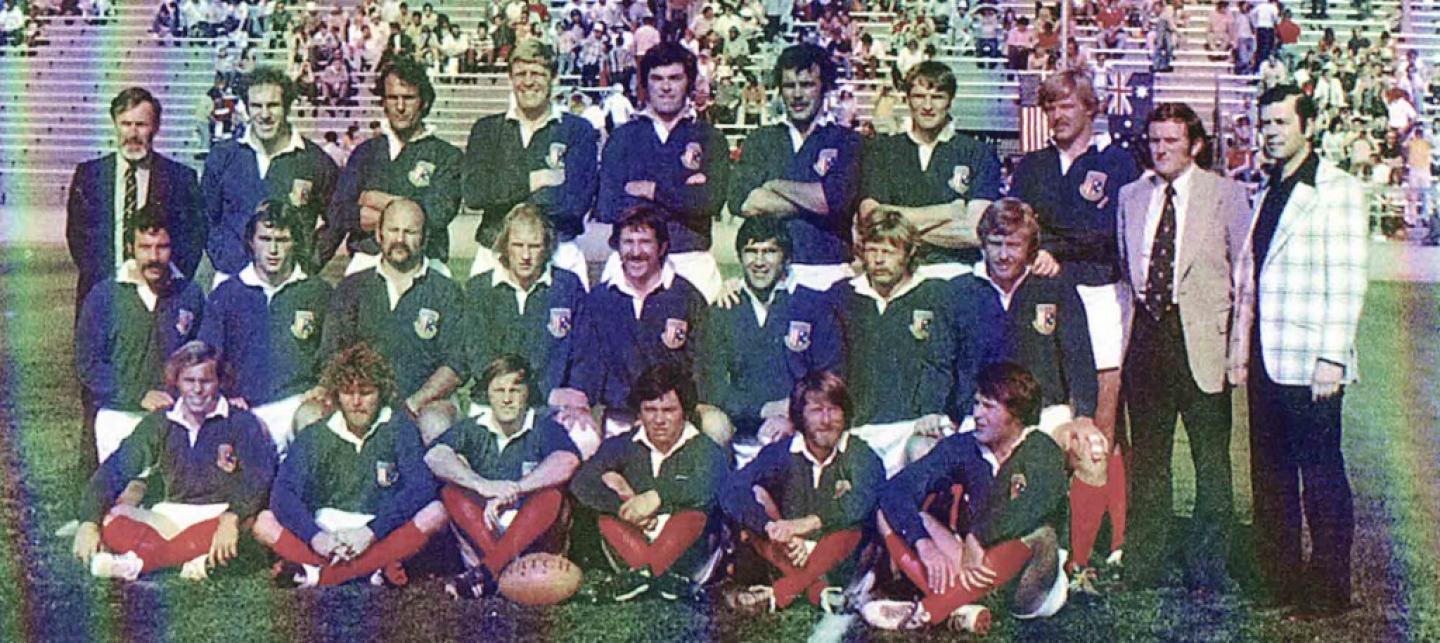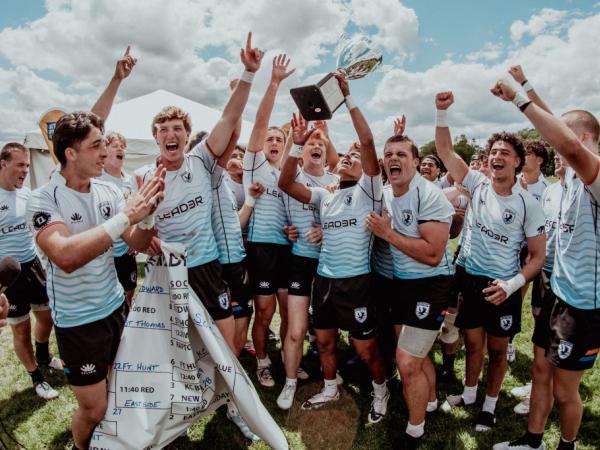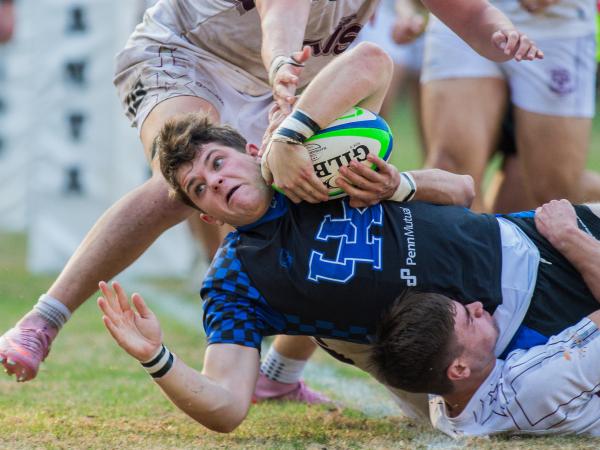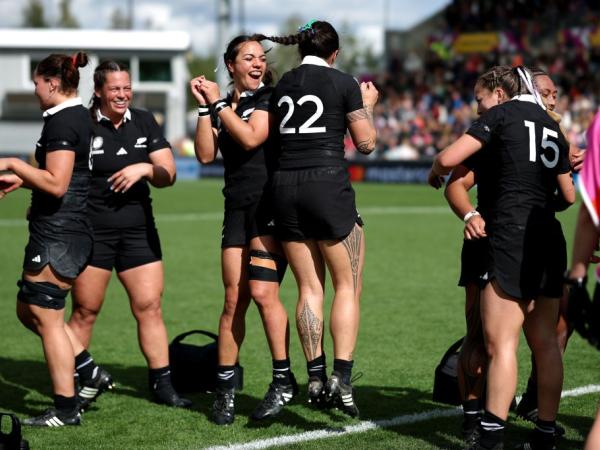Australia plays the USA Saturday night at Soldier Field in Chicago, adding one more chapter to the link between these two rugby nations.
It’s a link that includes many players - all-time top USA scorer Mike Hercus was born in Virginia, but grew up in Australia - and, most importantly for our purposes, some key games. The first time a USA team played a rugby game was a 12-8 loss to Australia in 1912. That game was not recognized by USA Rugby or the international community until very recently, but it was a big deal at the time (there’s a really nice look at this game here http://therugbyhistorysociety.co.uk/morris.html).
But in 1975, USA Rugby became an official entity, and in January of 1976, after a long tour of the United Kingdom, Australia stopped in California on the Wallabies’ trek home. There, in Long Beach, on January 31, 1976, the two teams played the USA’s first official international test match in the modern era.
In the game, the USA, coached by the great Dennis Storer, produced a spirited and aggressive performance, but were undone by a more experienced and more skilled Wallabies team 24-12.
“I played in the center with Greg Schneeweis,” said Dave Stephenson, who is now an accomplished rugby photographer. “He was facing David L’Estrange – a veteran of 12 tests, five years as a Wallaby. I was facing the captain, Geoff Shaw, a veteran of 17 tests, eight years as a Wallaby. All I remember about them are their knees. It seems like we did nothing but tackle the whole game. We had a special play – ‘Stephenson Crash’, Dennis Storer called it – designed to bring their centers in and hold them as the forwards peeled around from a lineout. A relatively new idea at the time. We ran it when we won a lineout halfway through the first half. I was knocked out for a couple of minutes and played the rest of the game with a concussion.”
This is the “don’t do that at home, kids” portion of the article. Back then players played on with concussions - not recommended.
Stephenson said the USA team had a shot at a few tries - including Stephenson himself on a breakaway - but some good cover defense by Australia and some dropped passes hurt their chances. Kip Oxman kicked four penalties, and Gary Pearse, Ray Price, and John Ryan scored tries for Australia in a 24-12 Wallaby win.
The pair of knees opposite Stephenson belonged to Gary Shaw, the Australian captain. Goff Rugby Report caught up with Shaw this week - he still works for the Australian Rugby Union in various capacities.
“We had just been on a four-month tour of the British Isles and played 26 matches,” said Shaw. “We had played in the United States before. Usually it was on the way over to Britain. We’d placed the East Coast of America on various other tours. But it was just before we were going home and we were fairly disorganized.”
In fact, finding a training ground in the Los Angeles proved difficult and the Wallabies were run off a park by the local authorities! Still, the game was important.
“The players didn’t realized at first that this was the first official test match for the United States, but once we found that out, everyone really wanted to be in on the game. Guys who’d been injured started saying ‘I think I feel alright.’ We certainly didn’t take them lightly and there was no resting anyone for the game, we all wanted to play.”
It had been a long tour for Australia, and included losses to Wales, England, and Scotland before they beat Ireland 20-10.
“We were on a bit of a high after that win, but we were also eager to get on back home,” said Shaw. “The people who met us from the American Rugby Union were extremely helpful in the hospitality side of the game.”
As for the performance, Shaw said his team didn’t perform to its standard.
“The USA team’s technical skills weren’t strong; they were physically strong and athletic, and they hit us really hard. We were in it for a few minutes and we all thought, ‘hang on a minute, what’s this? What have we got ourselves into?’ They were formidable, well-prepared. It took us a while to adjust.”
The physicality of the game shocked Australia a bit and while the score was in Australia’s favor - 13-6 at halftime - Shaw himself wasn’t happy.
“We had words at halftime - let’s get back to a structure. You can get a lot of one-outs, one guy says ‘I’m going to have a go at this,’ and we needed to do what we do and be technically correct. We played more like a team in the second half.”
That was the beginning, then. After that rough tour for Australia, they started to build something, and the superb Australian Schoolboys tour in the late 1970s sparked a resurgence of Australian rugby union. In 1984 Australia toured the British Isles and won all four matches. Three years later they were World Cup semifinals, and four years after that, world champions.
The USA showed athletic promise, but the growing seriousness of the NFL and college football meant that some football players who dabbled in rugby couldn’t do that anymore. As the Eagles crept closer to competitiveness on the world stage, professionalism provided a boost to many nations, but not to the largely amateur USA.
Still there were moments, one of which was the 1993 game against an Australia XV. It was a non-cap game for the Australians (who were nonetheless captained by Michael Lynagh and featured Jason Little, Matt Burke, Tony Daly, and David Wilson) but a big event for the USA as the Americans almost won. Wing Rich Shurfeld scored a try and Chris O’Brien kicked 18 points in a 26-22 loss.
Some of the other score lines haven’t been so close, but still meaningful. In 1999 in the Rugby World Cup, Australia won 55-19, but they gave up a try to Juan Grobler, and that would be the only try they gave up in the entire tournament, as they went on to become World Cup champions.
USA v Australia Results
1912 USA 8 Australia 12
1976 USA 12 Australia 24
1983 USA 3 Australia 49
1987 USA 12 Australia 47 (RWC)
1990 USA 9 Australia 67
1993 USA 22 Australia XV 26
1999 USA 19 Australia 55 (RWC)
2011 USA 5 Australia 67 (RWC)
USA v Australia kicks off at Soldier Field Saturday at 6:30pm. Tickets are available here: http://www.ticketmaster.com/event/04004EB4D1052F11#ref=usarugby
































































